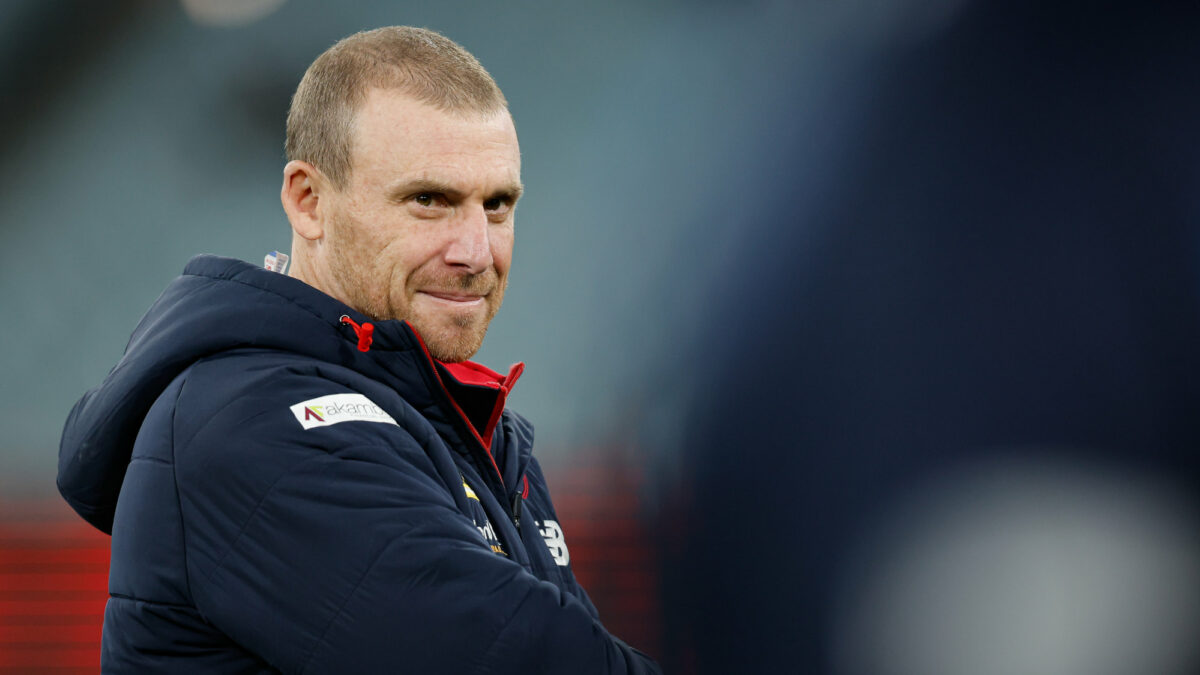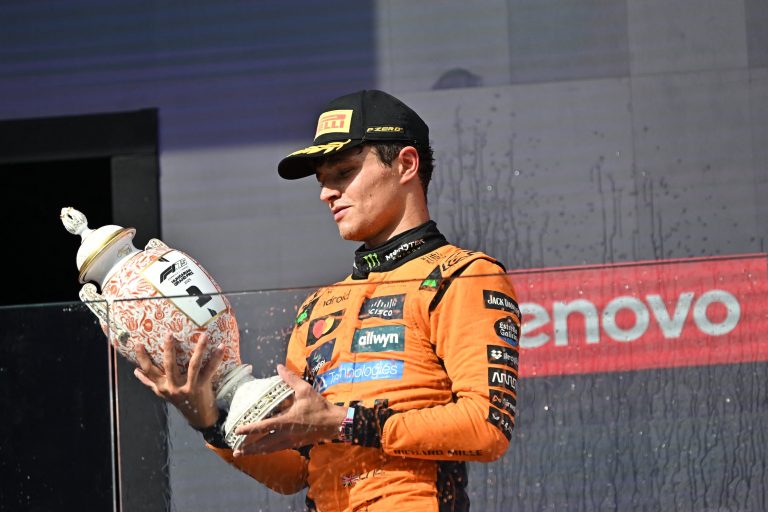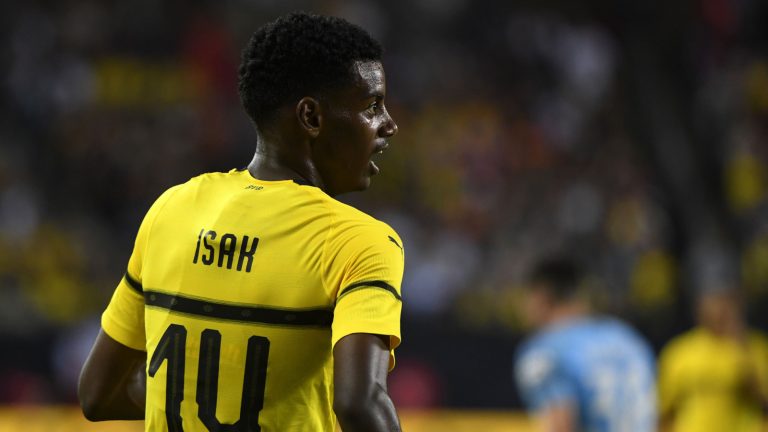Melbourne’s 2021 premiership felt like the dawn of a dynasty.
But three seasons later, the Demons are further from a flag than ever and even further from reinvention than they might admit.
This isn’t about effort, injuries, or bad luck. It’s about an organisation that built a strong internal culture, but now seems unable to evolve it.
The decline hasn’t been stark, but it has been steady. After finishing second in 2022, Melbourne exited in straight sets. In 2023, the same fate: two finals losses despite dominant midfield stats. In 2024, they dropped out of the eight entirely.
In 2025, stagnation, not resurgence. The issue isn’t talent – it’s transformation. This is a team with a premiership system but a post-premiership mindset.
Melbourne increasingly functions as a closed loop, favouring internal validation over external challenge. Why, for example, was Demons great Nathan Jones appointed to a key coaching role without experience at another AFL club?
It’s emblematic of a broader pattern: familiar voices, safe decisions, and a reluctance to bring in contrasting perspectives. Tactical issues like slow ball movement or forward inefficiency are routinely reframed as lapses in “effort” or “connection.” The result? Less learning, slower adaptation.
In addition, the Demons’ language often implies that belief, behaviours, and identity are enough to restore elite performance. While this fosters unity, it also masks deeper issues.
Structural or tactical problems are deflected through moral framing, as if running harder or believing more will fix a flawed forward setup.
The 2021 flag created a strong cultural mythology. But alignment has morphed into sameness. Tactical innovation appears limited, and familiar voices dominate the landscape.
To be clear, not all dissent is silenced. Christian Petracca has voiced frustration, but meaningful structural change rarely follows. The club listens, but it doesn’t pivot. Dissent exists, but it doesn’t shift decision-making.
Narratives like “we know our best is good enough” endure, even as game trends and performance data say otherwise. Emotional truth-telling, such as the annual pre-season love-in, often eclipse tactical evidence.
The club’s belief in its own story sometimes overrides the reality playing out on the field.
Problems are met with more of the same: train harder, recommit, trust the system. Rarely does the club publicly or structurally interrogate the underlying design.
It’s not just a question of execution, it’s whether the approach itself still works.
But there is a path forward. It’s time to conduct another independent football department review, but this time led by a hardened AFL insider, not a friendly outsider.
Benchmark against more tactically adaptive clubs. Recruit assistant coaches with different ideas, even if it unsettles the status quo. Real change starts with real disruption.
Go beyond outcomes. Ask: what assumptions are we protecting? Why do we play this way? What if the real problem isn’t effort, but structure? This kind of reflection builds not just resilience, but intelligence.
The Demons must strongly foster a culture where people can say “this isn’t working” without the risk of being marginalised. Appoint a devil’s advocate to test coaching assumptions. Encourage uncomfortable conversations. Dissent shouldn’t be a threat; it should be a leadership expectation.
The ability to speak plainly about failure is what separates enduring clubs from nostalgic ones. Humility isn’t weakness, it’s the first step toward reinvention.

Melbourne coach Simon Goodwin. (Photo by Dylan Burns/AFL Photos via Getty Images)
And stop hiding behind abstract terms like “connection” and “intent” unless paired with real data. What does “playing our way” actually look like statistically? What are the KPIs for success? Culture matters, but clarity wins games.
The 2021 premiership should remain part of the club’s identity, but not its operating manual. Let it inspire, not dictate. The next chapter won’t be written by clinging to what worked in Perth – it will be written by what works in 2026.
But isn’t the club already doing this, I heart you ask? Exactly – and that’s part of the problem. Melbourne would say they are implementing most of these suggestions. On the surface, that might be true. But when we apply these models critically, we see the gaps.
Open systems don’t just listen to feedback – they’re changed by it. Melbourne listens, but rarely pivots.
Psychological safety isn’t everyone nodding about working hard – it’s someone being able to challenge the system without consequences.
Data-informed decision-making isn’t having stats – it’s letting them disrupt assumptions. Double-loop learning isn’t reviewing outcomes – it’s questioning the very frameworks behind them.
Post-truth drift doesn’t mean the club lies – it means comforting internal narratives often overwrite uncomfortable facts.
So yes, the club believes they are already doing these things. But that belief, that illusion of change, may now be the biggest obstacle to actual transformation.
The Melbourne Football Club is not broken. But it is stuck. It has the people, the resources, and the talent. What it lacks is the courage to reimagine itself beyond 2021.
Premierships aren’t just moments to remember. They’re launching pads. And for Melbourne to truly contend again, it must ask the question no myth-driven culture wants to hear: what must we become now?





